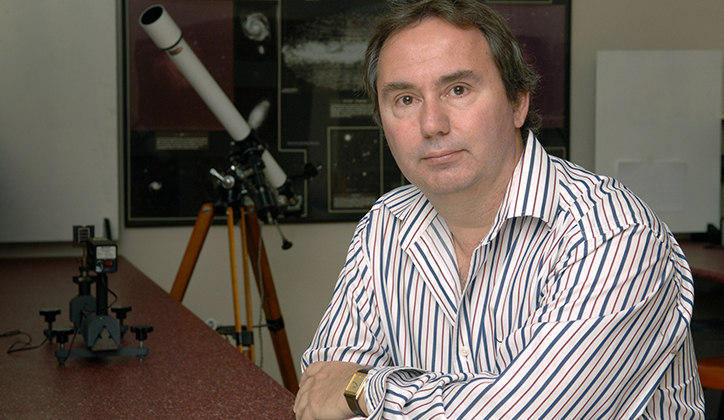Professor Quentin Parker
Director, Macquarie University Research Centre in Astronomy, Astrophysics and Astrophonics
How long have you been a researcher at Macquarie?
I arrived at Macquarie in April 2002 from the Royal Observatory in Edinburgh in a joint 50:50 position with the Anglo-Australian Observatory (renamed to the Australian Astronomical Observatory in July 2010 but cleverly retaining the same logo…).
I was drawn to research because…
Well frankly it is a lot of fun! Astronomy can be particularly rewarding in this way because there is still so much exciting stuff to discover out there in the cosmos. Finding something truly new, following it up, sometimes on really exciting cutting edge technology like the Hubble Space Telescope which I did for one particularly interesting discovery, then describing it, understanding it and putting it into the correct astrophysical context can be incredibly rewarding. Furthermore, it gives you bragging rights for five minutes until someone makes the next discovery or revelation.
What would be an ‘elevator pitch’ of your research area?
So an elevator pitch in a tall building perhaps – going to the top floor?
I study Planetary Nebulae – they are nothing to do with planets but just looked a bit like the large gas giants of Jupiter and Neptune when the first ones were discovered in the 18th century. They are actually the resolved, gracefully ejected outer-envelope shrouds of dying stars. These shells are illuminated by the contracting and heating up remnant stellar core (on the way to becoming a so called “white dwarf” star) whose copious energetic radiation ionizes the gaseous shroud and causes it to glow colourfully with a rich emission line spectrum. As these gaseous nebulae have incredibly diverse and beautiful morphologies and as the emission lines can reveal the chemical make-up and physical conditions of both the nebulae and, through plasma physics and stellar evolutionary theory, the temperature and physical conditions of both the nebulae and central star, then they act as windows into the soul of late stage stellar evolution!
In layman’s terms, what is the wider impact of your research?
Professionally the Macquarie Planetary Nebulae Research group is arguably the most impactful and well-known in the world. We have an excellent team of faculty, post-doctorate and PhD students that have produced many publications with several of very high significance, helping the astronomy research centre here achieve an ERA 5 in the Dec 2012 round. Amazingly we are currently the only five rated astronomy group in NSW. In more general terms our discoveries and images are so interesting they’re a photogenic magnet for public interest. Anything that engages our wider community in science and science matters is of value in my opinion given HSC physics enrolments currently sit somewhere between hospitality and law (not that there is anything wrong with either).
Who is/was your biggest research mentor?
A very difficult question as I have had the privilege to work under and with some of the brightest and most eminent researchers in both the UK and Australia. I’m still hoping some of this may have rubbed off.
If I were given $1M in research funding, the first thing I would do is…
Create a new continuing academic position and give it to two of my post-doctorates so as to keep the Planetary Nebulae group at Macquarie alive.
In ten years I see my research…
And that of my team! as having made a fundamental contribution to improving our understanding of Planetary Nebulae. They really are very powerful astrophysical objects for a whole host of reasons that space (pun intended) precludes me from describing.
My favourite and/or most proud research moment was when…
The new narrow-band “H-alpha” survey I fought for and instigated at the UK Schmidt Telescope in Coonabarabran, produced the first deep images of ionized gas in the Milky-Way galaxy and revealed – after 30minutes of visual scrutiny of the first exposure – a wealth of new discoveries! Vindication is a powerful drug so that was my best moment so far. If I am lucky there may be others.

